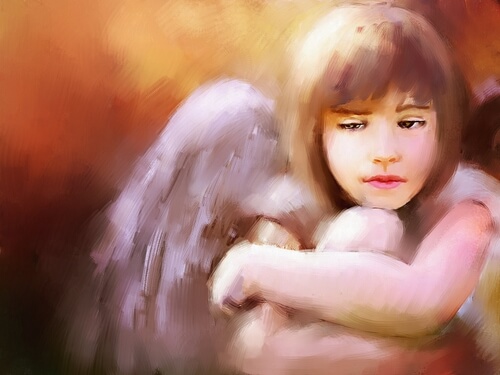11 Frequent Questions for Coping with Grief


Written and verified by the psychologist Gema Sánchez Cuevas
The death of a loved one causes us tremendous sorrow and makes us enter a state of lethargy that we think we’ll never get out of. This is quite natural after suffering a loss, and each person mourns in a different way. When someone leaves us, something inside us breaks. It is a difficult feeling to explain, and involves a multitude of thoughts and questions that we often don’t have the answer to.
To deal with these feelings, and to be able to help ourselves, we must allow ourselves to explore and bring to light the questions that are tormenting us and filling our minds.We must let ourselves speak and express ourselves. Our reactions and many and varied- from crying and anxiety to sadness and fear – we all have different ways of coping with grief.

It is essential that we give ourselves time to react and work things out, as well as allowing the people who love us to join with us in all of this. Silence, a look, a touch and having someone with us who isn’t in a hurry and doesn’t feel uncomfortable – these gestures are more valuable than words in these situations.
I look at the sky and try to see you among so many stars, I look for your lost image in the shadows.
I draw your face in the clouds that I see passing, traveling aimlessly and following the moon…
And I ask: Where are you?
And immediately my heart is stirred, and gives me the tear-filled answer that makes me understand again: You are not here, you remain in my heart.
-Unknown author-

11 questions and 11 answers after the death of a loved one
Although each person lives out the death of a loved one in a different way, there are some questions that are common during the mourning period. We cannot ignore this reality, because they cause us great uneasiness and uncertainty in our emotions. Let’s look at some of the most frequent ones (Martínez González, 2010):
1. Will I forget his voice, his laughter, his face?
When a close person dies, we try our best to keep them with us in our everyday life. We feel that if we don’t remember his laugh, the look on his face, and his way of walking then it would be like a betrayal. However, time makes that memory fade somewhat and we start to have doubts and worry that we may start to forget the things that physically defined him.
As we consider this,we should remember that, even if our loved one is not here, and we can’t touch him or listen to him, he remains very much in our heart. The affection, and the moments we have lived together, remain in our heart and nothing and nobody can take that away from us, not even time itself.
2. Coping with grief: Am I going crazy?
The loss of a loved one causes a state of shock, a mental block, which is extremely difficult and alienating. Experiencing so many emotions at the same time make us feel that we have lost control of ourselves.
We must point out that this is almost always a very necessary transitional stage to be able to process what has happened to us. It is like a defense mechanism that aligns our great inner strength in order to produce the energy we need to keep afloat and carry on with our lives.

3. How long will it last?
The answer to this question varies greatly, because this period of time depends on the circumstances, the personal characteristics, the relationship we had, the way in which the loss happens etc.
However, the first year is always very difficult, since everything reminds us of the deceased person as certain special dates go by: the first Christmases, the first birthdays, the first holidays etc.
The despair of not being able to share the events, achievements and feelings with that person make us relive the tragedy relentlessly. However, it is true that this period of time is not a passive one, because it helps us to accept death and, slowly but surely, to live with it.
4. Will I ever be the same?
The answer to this question is NO. The death of a loved one marks us and breaks us, and, inevitably, changes us. We lose parts of our lives, the parts that went intricately with that person.
We mature in some aspects, we recover our value system, we give importance to different things and we start to think differently. All this constitutes a learning curve that frequently makes us more committed than ever to life.
5. Why has this happened to me? Why is he gone? Why now?
In a desperate attempt to try and understand what is incomprehensible and unfair, we inevitably ask ourselves these kinds of questions.
They have the purpose of helping us to go over, analyze and understand reality in a rational way, because we feel the need to control and manage the situation in order to combat the anguish.
The death of a loved one is always unwelcome and undesirable. In the absence of answers we will end up asking “what’s this all about?”, and this is a question that will help us restructure our experience and our grief better.

6. Am I ill?
No. Anguish and other feelings in the event of the loss of a loved one doesn’t mean we are ill. It is a natural process that we must deal with. This doesn’t mean we shouldn’t pay special attention to these feelings; we should always meditate on them correctly. We will need an indefinite time to recover and restore our psychological balance , the part of us which allows us to manage our emotions and our thoughts.
7. Do I need psychological help?
Feeling bad during the period of grief is actually a healthy thing. At first the mourner needs to express himself, go over things and remember the absent constantly. Some people need a psychologist to set limits on the distress they are suffering, as well as being a person who listens to them and understands them unconditionally.
Therapy offers this option, but, undoubtedly, not everyone needs therapeutic help along the way. This will therefore depend on each individual situation.
8. What should I do with their personal items?
There are usually two extremes regarding what to do with a loved one’s personal items. Some people get rid of everything with the idea that it will take away the pain of their memories, while others keep everything exactly as the deceased person left them.
Each of these reactions show us that there hasn’t been an acceptance of the loss, and so it is advisable to help that person to assimilate their loss.
There is no ideal way to do this, but we should avoid falling into extremes. The healthiest thing is to dispose of things or give them away little by little, as and when we feel strong enough to do so.
However, we should bear in mind that keeping those things that have more sentimental value will help us to remember the person with greater affection.
9. Does time heal everything?
Time doesn’t heal everything, but, without a doubt, it offers perspective. With the passing of time and with new experiences along our road, we distance ourselves from the painful event in some way.
This brings us to the point when we have to choose between one attitude or another: we can have a defeatist attitude or we can have an attitude of overcoming. Time helps us rethink these things.

10.When is the mourning over?
The mourning ends when we start to show interest in life again. When our energies are focussed on relationships, on ourselves, on our work projects and on feeling better, then we’ll begin to renew our enthusiasm for life.
It is then that we’ll be able to remember with affection, and with nostalgia , The memories won’t cause constant pain anymore.
11. What can I do with everything I’m experiencing and feeling?
After the whirlwind of emotions and sensations that have taken hold of us, we are faced with how useful this painful experience will be in our lives. Each of these events has an intimate meaning that we have to work through, explore and decipher in order to build our lives again.
It may help us to write about it, to listen to music that helps us to process our emotions or to perform some meaningful activity.
This will help us to be thankful for the deceased person, and remember them with affection. We’ll be conscious that they will never leave us because they will remain inside us as memories and lessons. We will be their very essence, an essence that will never disappear.
Main illustration by Mayra Arvizo
This text is provided for informational purposes only and does not replace consultation with a professional. If in doubt, consult your specialist.








